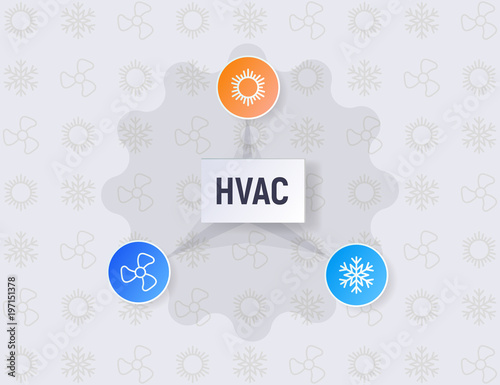Discovering The Ecological Advantages Of Heat Pumps - A Lasting Heating Service
Discovering The Ecological Advantages Of Heat Pumps - A Lasting Heating Service
Blog Article
Developed By- please click the following post
In an era where sustainability and energy performance are extremely important, lots of companies seek eco-friendly heating options. One such solution is the heatpump.
A heatpump removes the heat in its surroundings and pumps it into your home, causing among one of the most effective eco-friendly central heating systems around. This process additionally produces zero greenhouse gas exhausts, making it a very sustainable innovation.
Power Efficiency
Heatpump are very power reliable and require little maintenance. They make use of less electrical power than various other furnace and are without a doubt one of the most eco-friendly. They work well with rooftop solar and can typically spend for themselves in energy savings alone.
They can likewise give air conditioning, which is great for garage workshops, attic room hangouts and benefit spaces, and home additions without extending the existing ductwork. They can even be utilized for retrofits in existing homes with hydronic (water-based) circulation systems such as reduced temperature radiators or radiant floorings.
Seek versions with SEER and HSPF ratings that fulfill or surpass Canada's minimum criteria, as well as the requirements in your region. Greater ratings mean better effectiveness, which saves you cash over time and lowers your carbon impact. You may even get approved for rebates and motivations! The most effective devices are those with a ground warmth exchanger for added performance. These systems can soak up thermal power from the ground throughout the winter and essence it in the summertime.
Decreased Greenhouse Gas Emissions
Heatpump work on electrical power and basically move warm from the air, also when it's cool exterior. They are able to draw out the complimentary heat entraped in air fragments and relocate them inside, minimizing humidity while doing so.
Compared to gas heating systems, modern heatpump make use of less than one kilowatt of electricity per kilowatt of home heating power they produce. This makes them one of the most energy effective heating choice offered with a POLICE (Coefficient of Efficiency) of 4 or even more. By slashing the need for nonrenewable fuel sources, heat pumps help reduce greenhouse gas emissions and cut other significant air pollutants.
Building decarbonization is a global imperative, and the HVAC sector is a vital vehicle driver of that process. Whether it's real estate investors making internet absolutely no commitments, policy makers establishing emissions limits, or renters demanding greener rooms, electrical heatpump are being recognized as an essential option. https://www.wbay.com/2022/07/03/tips-keep-pets-safe-comfortable-this-4th-july/ are an economical means to lower carbon discharges by removing the need for nonrenewable fuel sources in buildings.
Convenience
Heatpump can be used in several types of homes and buildings-- with or without air ducts. They work with hot-water radiators, air-conditioning and programmable thermostats. They can replace heating systems or be set up in brand-new homes. They can run on photovoltaic panels, geothermal systems and even district home heating resources like wastewater.
They're terrific at supplying even more heat per power system. For instance, an air-source heat pump creates approximately 3 or even more home heating units from each electricity system it takes in.
Obtaining the most from your heatpump will certainly depend upon your climate area and high quality of insulation. Try to find models with ENERGY STAR ratings and compare their SEER or HSPF specifications. In warmer climates, focus on SEER; in colder areas, consider a system with a higher HSPF ranking. In addition, invest in air securing and insulation to lower the lots on your heat pump. That will certainly improve energy effectiveness and help you reach your Net No objectives faster.
Biomass Boilers
Biomass boilers utilize wood pellets, chips or logs to create warmth and warm water. They are a good choice for off-grid buildings or those who want to get off the gas grid.
As a standalone heating system, biomass can provide sufficient power to keep your home warm all the time without the common warmth drop off of other sustainable modern technologies. They can likewise be made use of along with photovoltaic panels to maximise savings and take advantage of RHI payments.
A drawback of these systems is the ahead of time expense and routine gas deliveries. Commonly, pellets will certainly require to be blown into a fuel shop utilizing a vacuum system or they can be by hand fed into the central heating boiler through a receptacle. Logs are typically self-sourced from nearby woodland or bought in bulk. As well as this, they need hand-operated loading and might need cleansing on a regular basis.